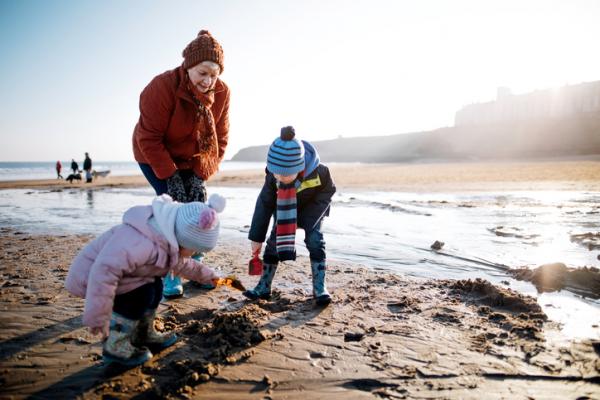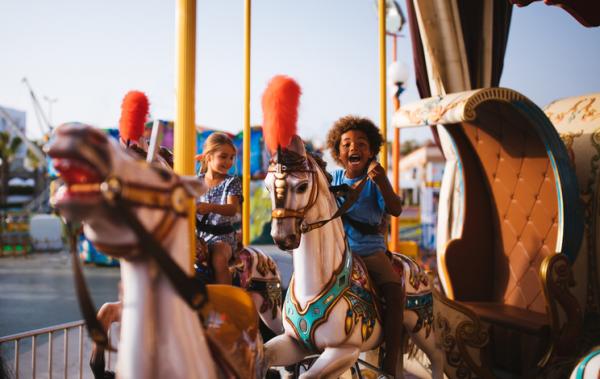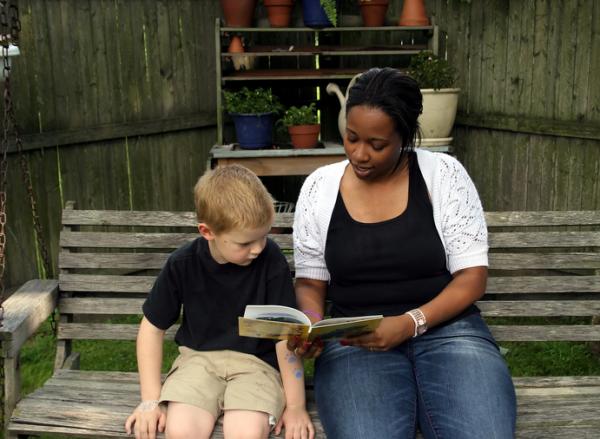Many couples who already have their own birth children decide to foster, and we believe they often make some of the best carers, simply because they have hands-on experience in raising children. What’s more, looked-after children can sometimes find it easier to adjust to a new home if there are other children around, as it can help them to feel more comfortable.
Despite these benefits, there are a lot of misconceptions surrounding fostering a child when you already have birth children of your own, with some people believing that it’s either not viable or that it can have a negative effect on family life.
To help ease these concerns and answer some of the questions you might have about welcoming a foster child into your family home, we’ve put together a guide which shines a light on what life is like for fostering families. From the events and activities your family can access, and advice on helping your foster child feel a part of family life, to what birth children think about fostering – our guide can help you decide if fostering a child is the right step for you and your family.
Foster children are encouraged to experience as many things as possible and to be a part of your everyday family life and routines. When welcoming a foster child into your family home, there are things you and your birth children can do to help make them feel more comfortable, and to adjust quicker to family life.

Holidays are one such experience. If you’re planning a holiday or a period of time away from the family home, including your foster child in your travel plans is a great way to make them feel a part of the family. You’ll need to discuss your plans with the child’s social worker, who will ultimately make the decision whether it’s OK to travel with them – but holidays can usually be agreed.
There are a few things to remember if you want to take your foster child overseas, so you’ll need to plan your trip carefully.
We hold a variety of events throughout the year which include every member of your family, including looked after children in your care and your own birth children. This includes training days, carer support groups, children’s events, carer consultations and Christmas events.
Our training programme is in-depth and delivered locally by our team of trainers. It covers a wide variety of topics designed to help you acquire the specific skills required to look after children and young people. We also have a series of online training courses you can access remotely from the comfort of your own home.
Carer support groups are run regionally by our team of social workers and provide a forum for our foster carers and social workers to discuss issues and practice. They usually take the form of a coffee morning and provide a relaxed and confidential environment for discussion. Our carers also have the opportunity to meet with our senior management team at our yearly Carer Consultations where they get the opportunity to discuss local and national issues.
Vox is our children’s consultation group, giving support and advice to looked after children and our foster carers’ birth children. These groups enable the children and young people to have fun, learn new activities and meet other children within NFA.

Many parents worry about the impact that fostering a child could have on their home life, particularly if they already have children of their own. However, we find that most birth children really enjoy and learn a lot from the experience, and can often form great relationships with the children who come to live in their home alongside them.
Here, we hear from Emily, daughter of current NFA foster carers, Mark and Gina, about her personal experience of growing up with foster children in the family home: “Fostering not only changes the foster children’s lives, but the foster family’s lives too. Fostering gives me the sense that I’m helping less fortunate children than myself. Recently we have had two little children P and T, this has been a real challenge as T was only 10 months when he first came to live with us.

“It has been rewarding watching him grow and now he’s starting to walk and talk. P is 6 and is a real treat to have living at our house, P and myself have a very close relationship and she always knows that I’m here for her with anything. We enjoy doing each other’s makeup and hair and she likes showing her dances to me that she’s learnt. P and T are now in the process of being adopted. I’m very happy for them that they will get a fresh start at life with a loving family.
“It is going to be hard to say goodbye as I see them as part of my family, but I know they are going to a family who will treat them well. I’m so glad my family started fostering as it has opened my eyes to how other people live and their experiences. I would recommend fostering to families and the outcome is always rewarding watching them grow and change.’ You can find more information on how you can change a child’s life and the benefits of fostering on our why foster page.
We hope this article has helped shine a light on the different aspects of life as a foster family.